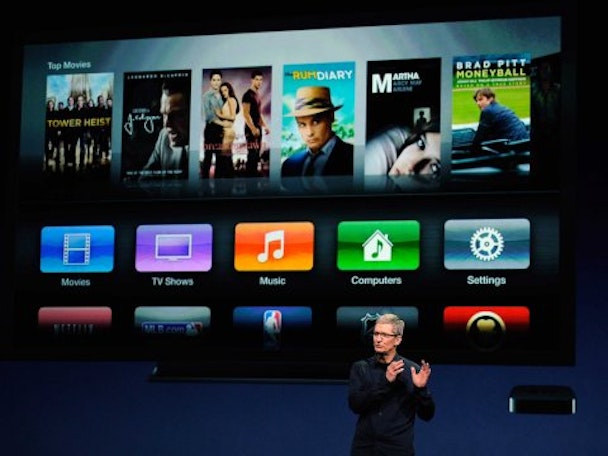Are services, and not hardware the future for Apple’s brand?
Lost in all the noise that iPhone sales are set to fall for the first time later this year is the fact that Apple just fired the starting gun on rebranding from a hardware manufacturer into a services provider, argues Seb Joseph, news editor at The Drum.

Much has been written about the future of the business after it reported the slowest growth in iPhone sales since the product’s 2007 debut. The tech giant is seen as a one-note (albeit very successful) business, built on the success of the iPhone. Although it is now at risk of reversion, as most people have a smartphone and many other companies are selling them at much cheaper prices.
This slump in growth and flirtation with average is notable for a brand voted the world’s most valuable three times in a row, and spotlights the inflection point it now finds itself at. Apple’s shares may have plunged more than 6.5 per cent – the biggest drop in two years – on its underwhelming performance in its latest quarter but revenue and profit were its highest ever recorded, spotlighting the exposure Apple’s hardware focus leaves it open to when it comes to adapting to the vagaries of a tough macroeconomic climate.
Unlike Google or Amazon’s charm offensive on publishers and advertisers, Apple riled both parties when it introduced ad blockers to iPhones last September and all but ditched its iAd advertising business earlier this month. And yet despite Apple’s apprehension to erecting a sprawling ecosystem akin to Google, Amazon or Facebook in recent years there are signs that it may just be planning to do just that.
“[Apple] is one of the largest service businesses in the world,” boasted chief executive Tim Cook on an analyst call earlier this week. “I do think that it’s probably something that the investment community would want to and should focus more on,” he continued, no doubt aware of the need to allay concerns from some observers that its lower than expected iPhone sales are a tell-tale sign that the company can’t keep up with the diversity of its audience.
“Apple knows it needs to diversify from its dependence on the iPhone,” said Ian Fogg, head of mobile analysis at IHS Technology. Apple must leverage its vast iPhone installed base to cross-sell the app-enabled Apple TV and Apple Watch to iPhone owners now, he urged “while the iPhone is selling well, to set up its business for the long term”.
It was telling then that during the same call he talked up Apple’ credentials as a services provider that he put a number of those people using its features. Around one billion devices - iPhones, iPads, Apple TVs, Apple Watches, Mac computers and iPods – banked $5.5bn in services revenue for the iPhone maker in the three months to December, up 15 per cent on the same quarter last year. That $5.5bn is around the same as Starbucks’ according to the Wall Street Journal, revealing the scale and more importantly the loyalty of an audience willing to spend on apps, movies and other services.
By opening up about its numbers and downplaying its reliability on hardware, Apple has set in motion plans to safeguard the premium value of its brand that the sharp drop in its share price hinted could be in danger. And as iPhone sales plateau the business will try to spread more sales across the iOS, Mac OS operating systems that underpin its mobile, laptop, wearable and smart home offerings respectively.
Rather tellingly, Apple already appears to have the foundations of a business model primed to deliver that growth. For some of these services, such as content, revenue is based on transaction value, while other services like the App Store it shares a portion of each purchase with the developer and only recognises revenue from the portion it keeps.
Add to that reports doing the rounds this week that the Apple News app will soon offer access to paywalled content and its clear that the c-word will play a big role in how successful the company’s transition is. Apple opted against betting heavy on digital advertising when it was more performance driver than brand building tool but with advertisers looking to content to hit both KPIs now those four platforms may give it the scale finally get skin in the game.
Cook and his team have regularly talked up the notion of iOS everywhere, the idea that from the pocket to the wrist Apple will become the he operating system that ties a person's digital activities together. It may trail the likes of Google, Amazon and even Netflix when it comes to content but the end of the manufacturing economy and the rise of the network one is just being figured out and there’s still all to play for.

